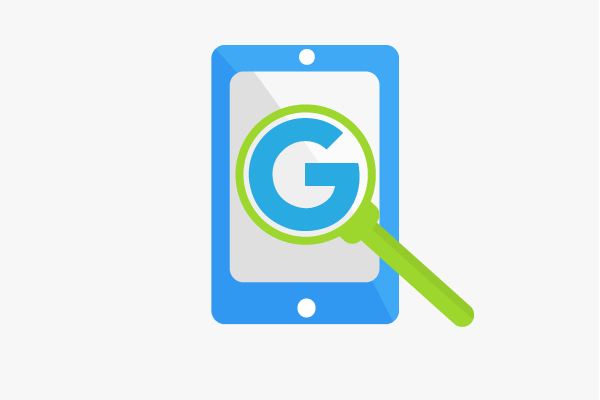App Indexing
App Indexing is a Google technique that can link organic search results via deep link with content from the corresponding app directly. Google does not only get its data from a large search index of websites, but also uses the indexed contents of apps from the Google Play Store. So far, app indexing is mainly provided by the Google search app that you can install on smartphones or tablets.
Development
App indexing is one of a number of developments of search functions, such as the Hummingbird update which was launched by Google in 2013. The search engine company from California enabled this new technology right in time for the presentation of its new smartphone Nexus 5 and the new version of its OS, Android 4.4 KitKat. What makes the app indexing special is that search results are directly linked with the content of apps for the first time. Previously, AdWords ads merely directed to the Google Play Store via a link, where users can download the app for the corresponding online store or service website.
Requirements for the indexing of an app are:
- The user must be logged into their Google Account
- The Android search app with version 2.8 or later must be installed
- A browser on a tablet or smartphone with the Android operating system must be used
By referring to the applicable content in apps, Google app indexing focuses even more so on mobile content and Google search is adapted for all devices. It is conceivable that in the future, it will be technically possible to integrate app indexing into the search function without having to be logged in as an Android user.
How it works
A user searches via the Google search app on his smartphone for a cake recipe. He enters “marble cake” into the Google search bar and after clicking “Search” will receive the results. In addition to the first results in the SERP, the “Open in app” button appears. If the user clicks on it, the appropriate content will open directly in the app, which has already been installed.
“What happens in the background”
Google receives the requirements and additional information on the device and installed apps. After that, the search engine recognizes that it is an Android device and then that an app of the recipes website is installed on it, which is displayed in the top 3 of the best result for “marble cake” in the SERP. As a result, Google will show a pointer to open the recipe in the app alongside the recipes site snippet.
Background
With the introduction of app indexing, Google can strengthen its position as market leader among the search engines providers even further. The company directs its visitors even more intensively to its range of mobile apps and provides for those who have the appropriate apps even more convenience when browsing with a mobile device. This gives Google another strong trump card against Apple, showing all the strengths of its search capabilities. App indexing offers more opportunities for app developers to connect mobile content with its corresponding websites.
Implementation for developers
According to Google, app indexing is initially only available with selected apps and only for users in the US. In order for the technique to work, webmasters for any website that can be opened in an application, must select the appropriate link in thesection of the web page with rel=alternate. This might look like this:
Desktop version:
www.samplesite.com/info/appindexing
Link to the Android app offers:
... ... …
Additionally, this deep link to the app can also be saved in the XML sitemap:
<!--?xml version="1.0" encoding="UTF-8" ?--> http://www.samplesite.com/info/appindexing ...
The format for the link to the app must be created as follows so that users will actually be navigated to the appropriate place by clicking on the link. One speaks here not of URL, but URI:
android-app://{package_id}/{scheme}/{host_path}
The following coordinates are referred to:
- package_id: this number is the ID that is stored in the Google Play Store for the app
- scheme: the custom scheme that is passed to the application
- host_path: refers to the specific content
Benefits for search engine optimization
App indexing could pose new tasks for SEOs in the future, as it would be conceivable that Google will offer a separate search function for app content or even more strongly adapt the existing index to the nature of the device being used. Consequently, content and media in apps would also need to be optimized for search engines. App indexing already requires a perfect correlation between mobile content and the desktop version.
Moreover, it would also be conceivable that in the long run, those shops, stores, and websites that have their own apps or Android apps will be displayed with priority, especially when searching with mobile devices. Google has already explained in several posts how webmasters can optimize their sites for mobile devices. The Google AdWords extensions for advertising on smartphones and tablets could also be interpreted as an indication of the strengthened new focus.
Putting app indexing into an even broader context, it is quite conceivable that the presence of an app could be a type of ranking factor in highly competitive sectors such as loans or fashion.
Web Links

